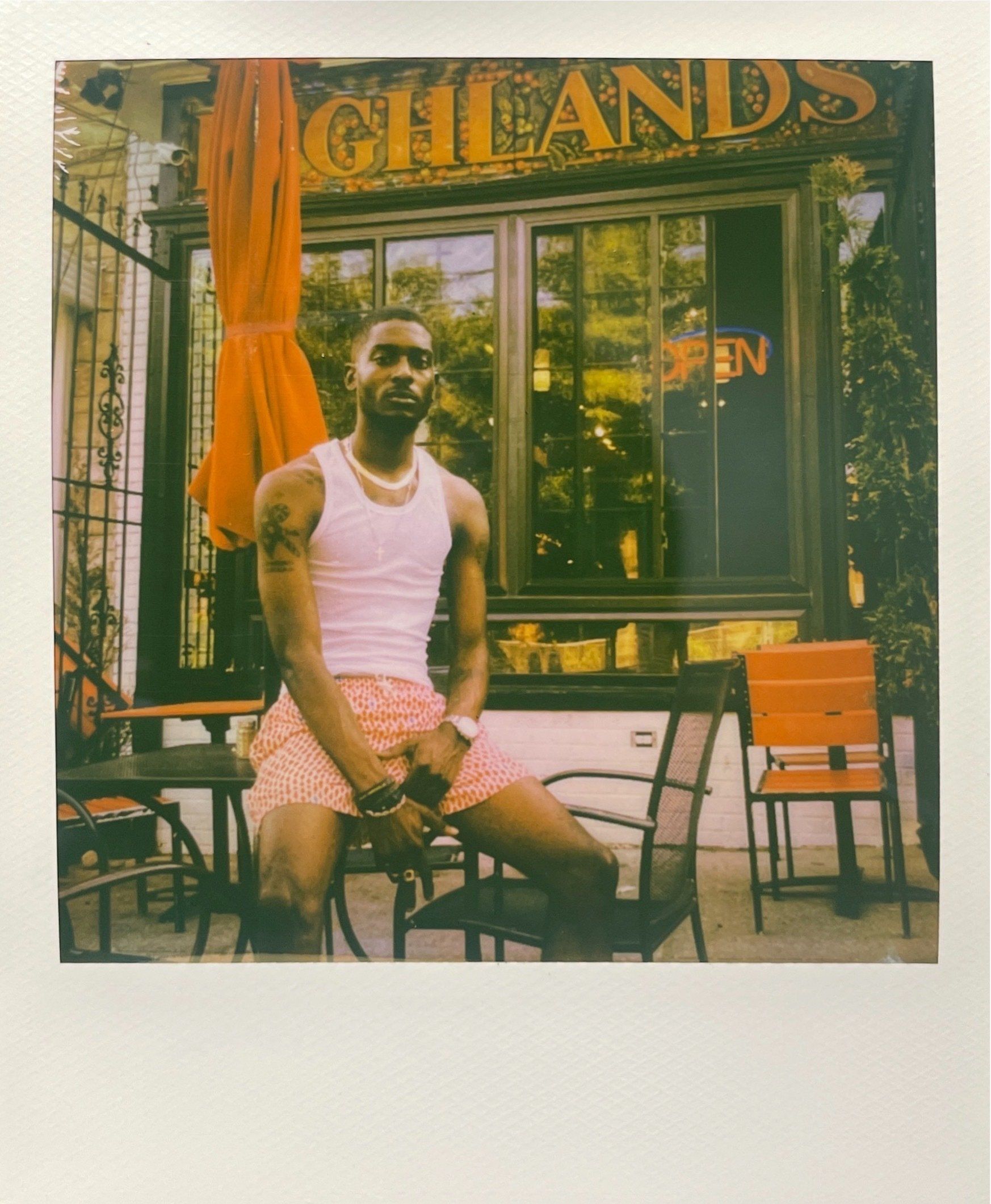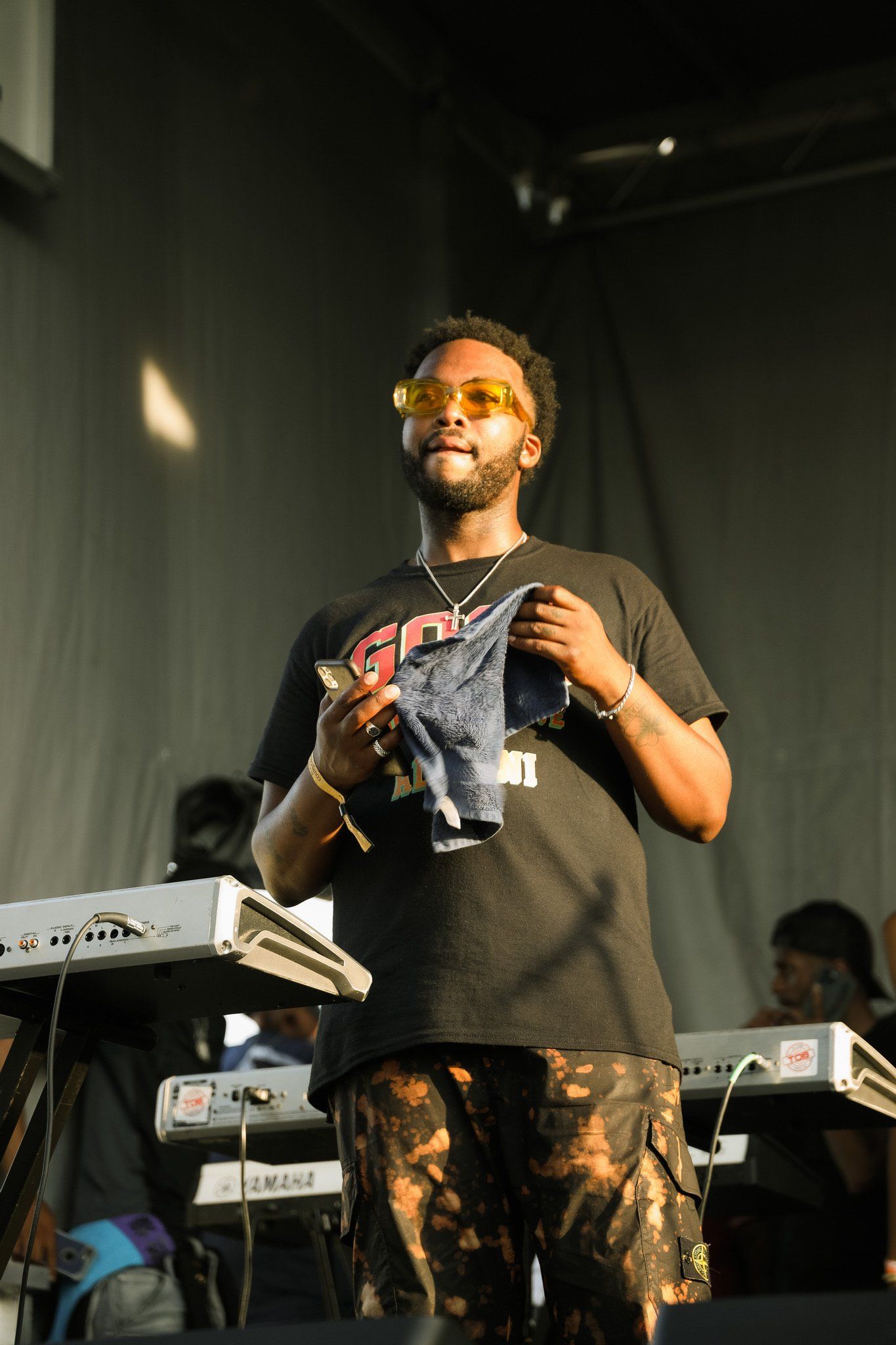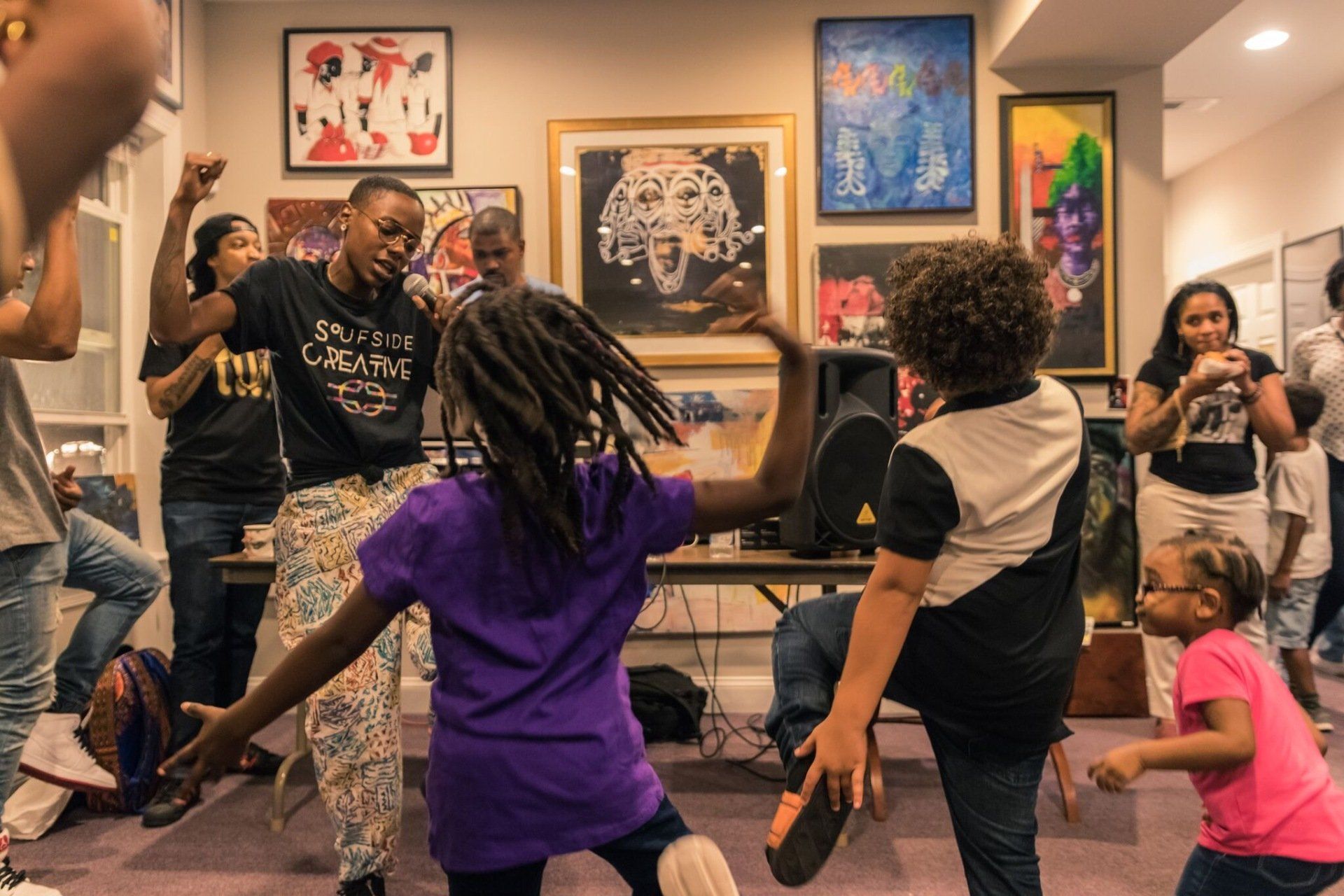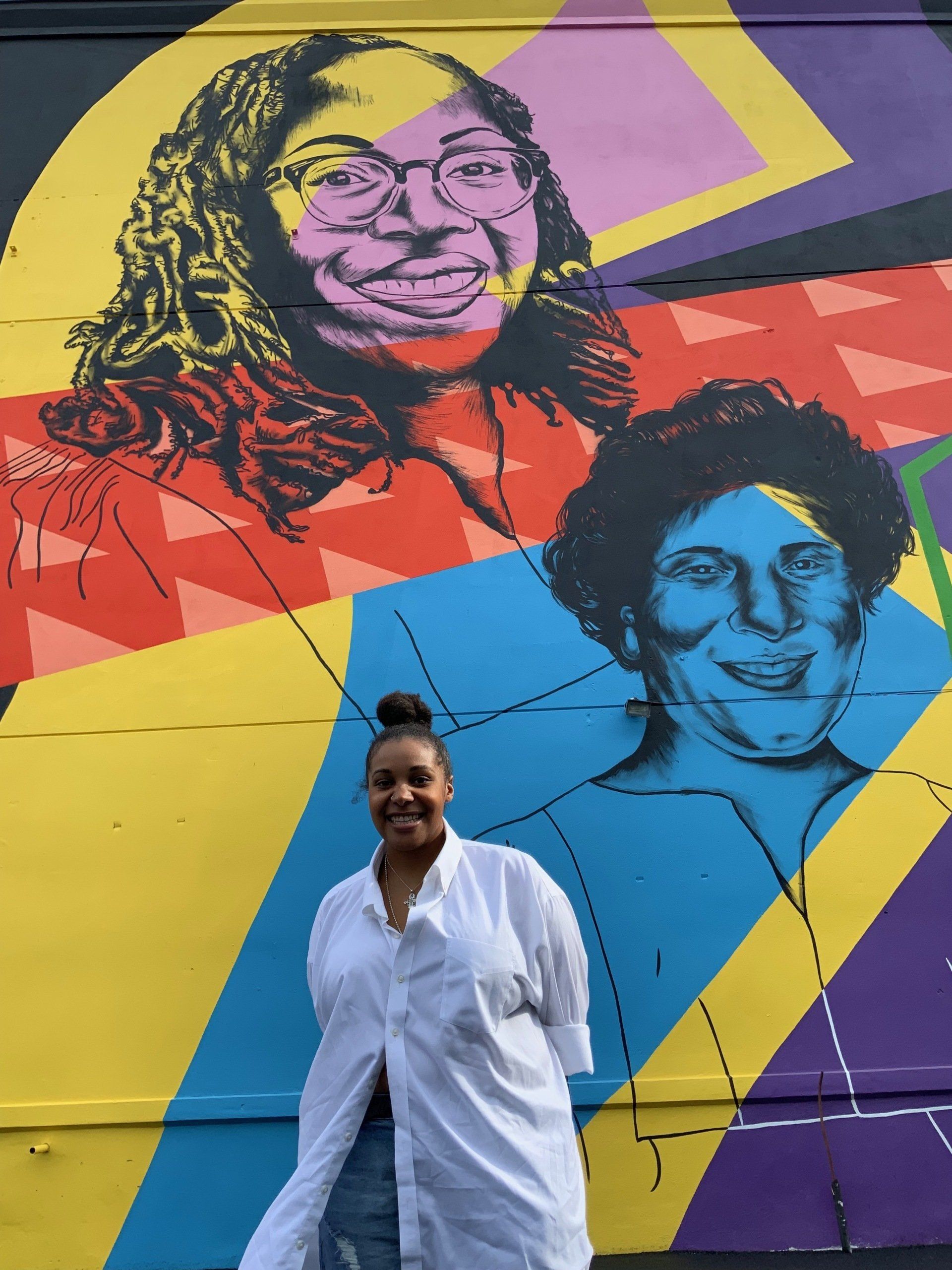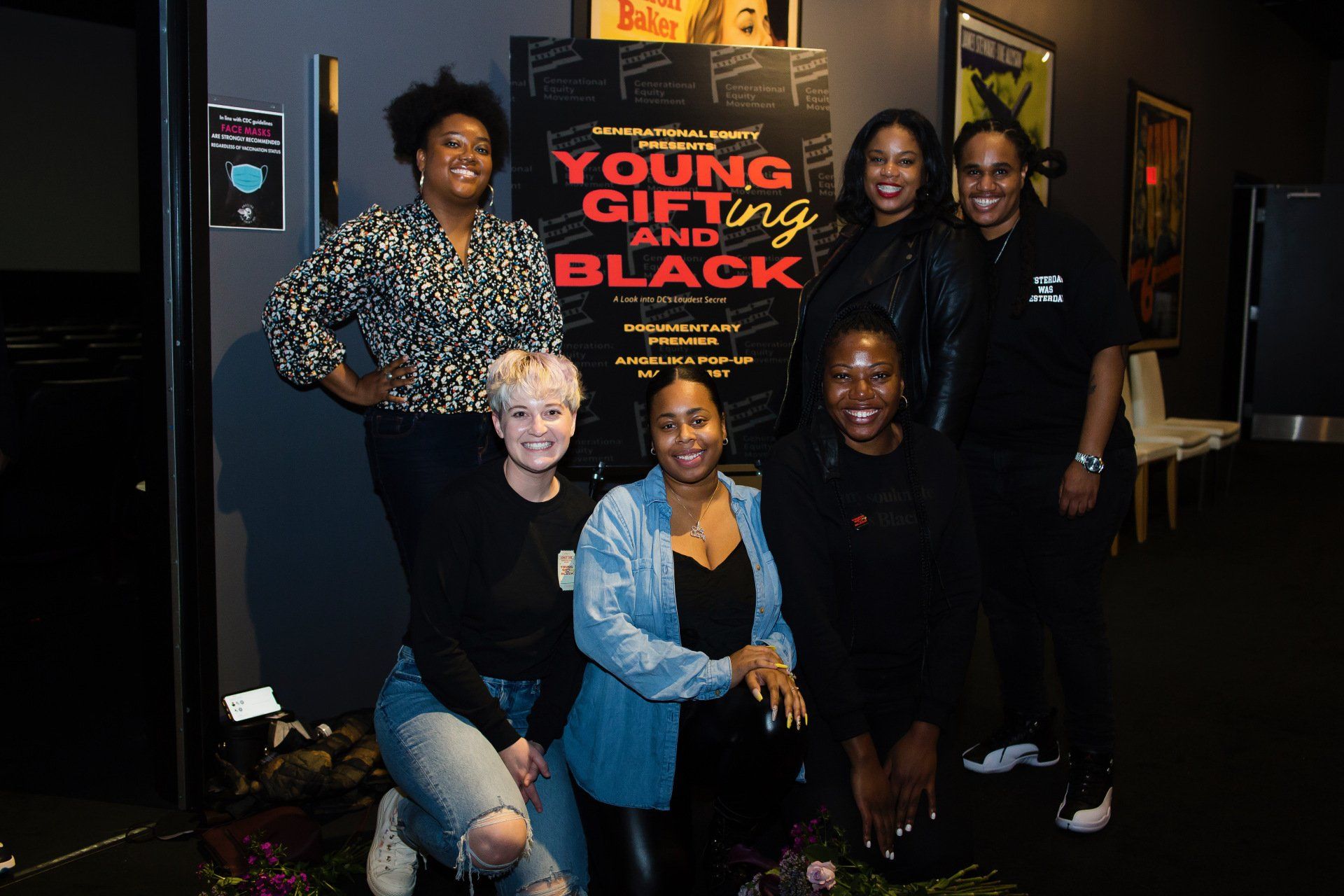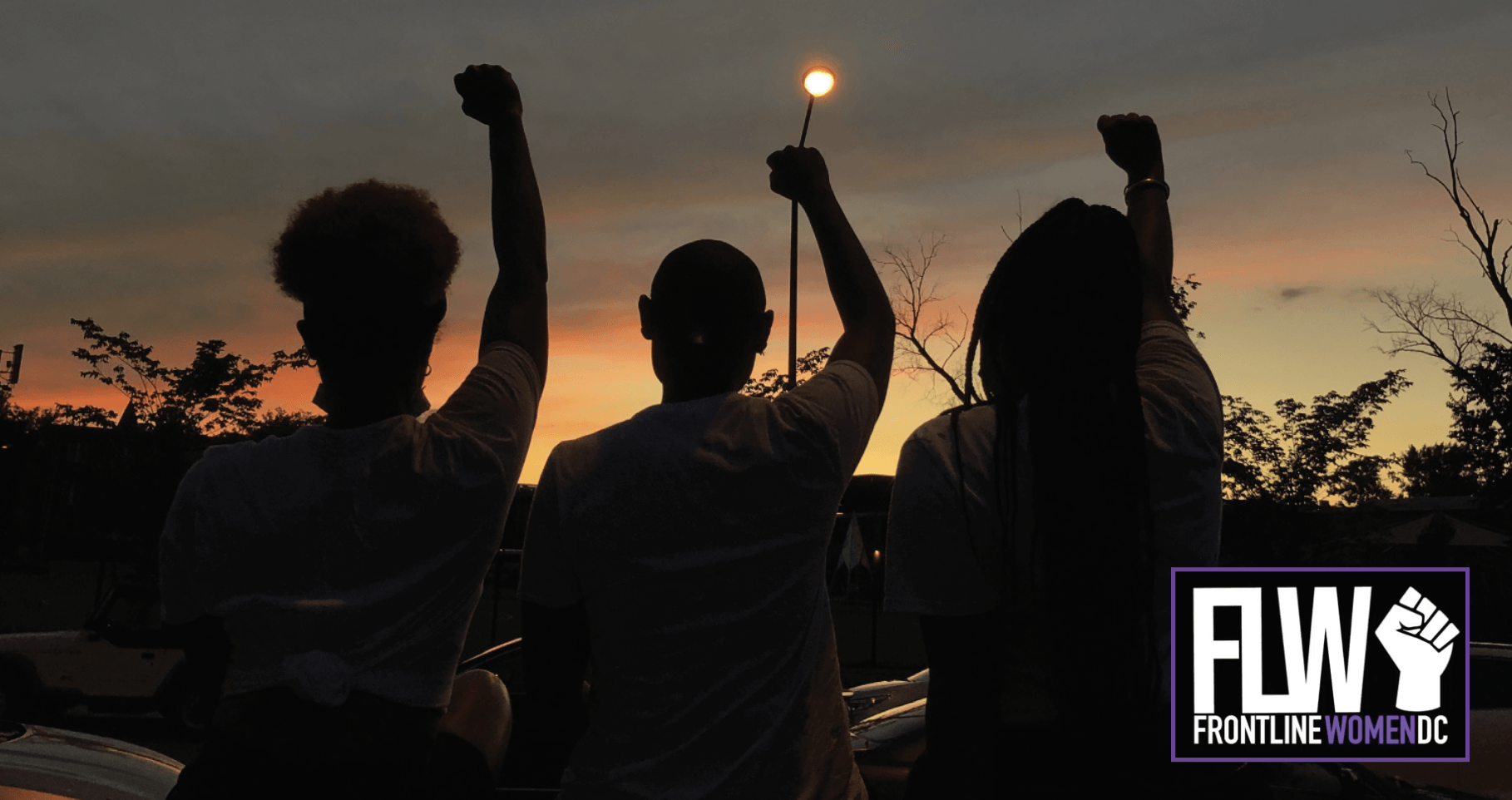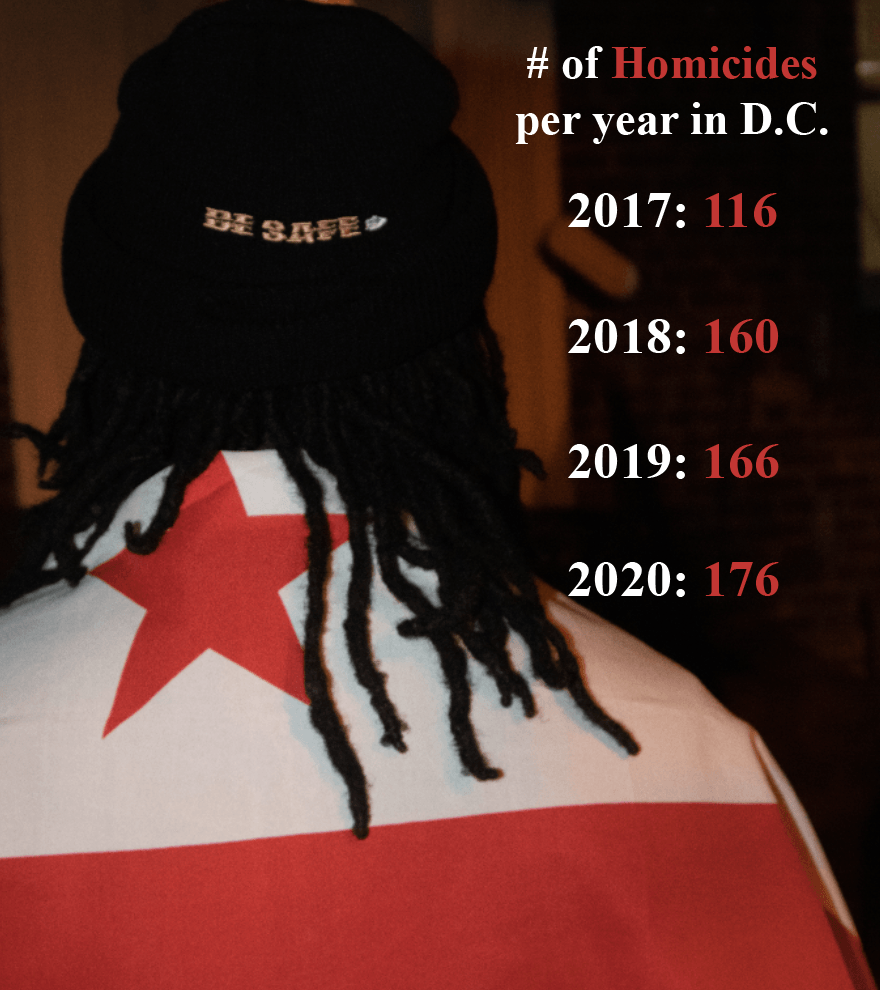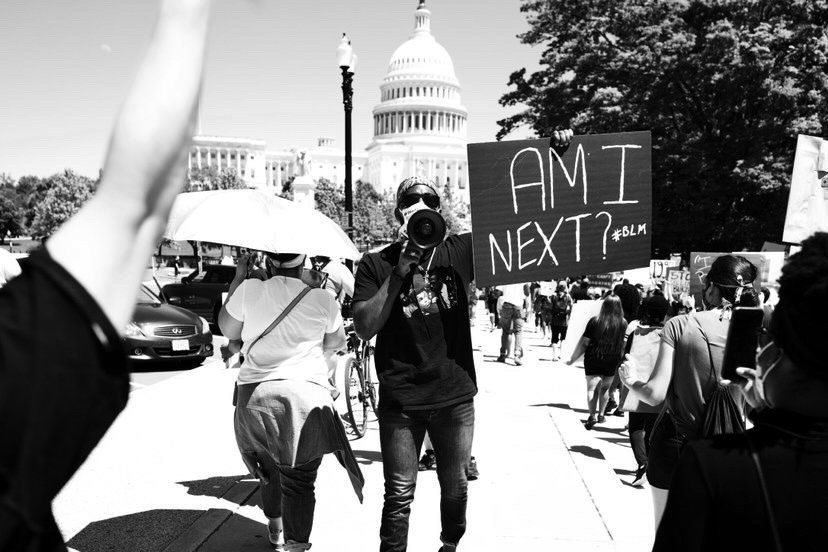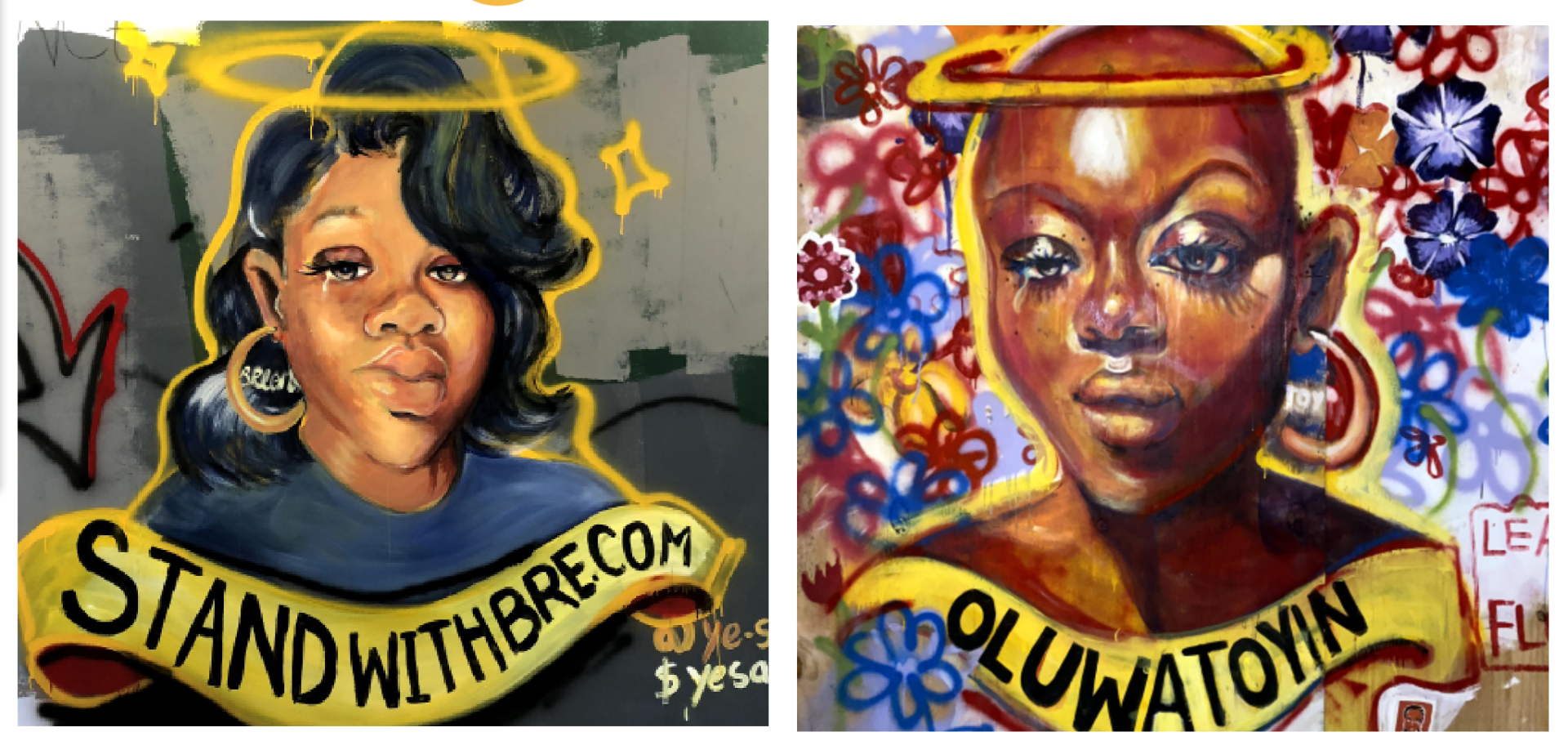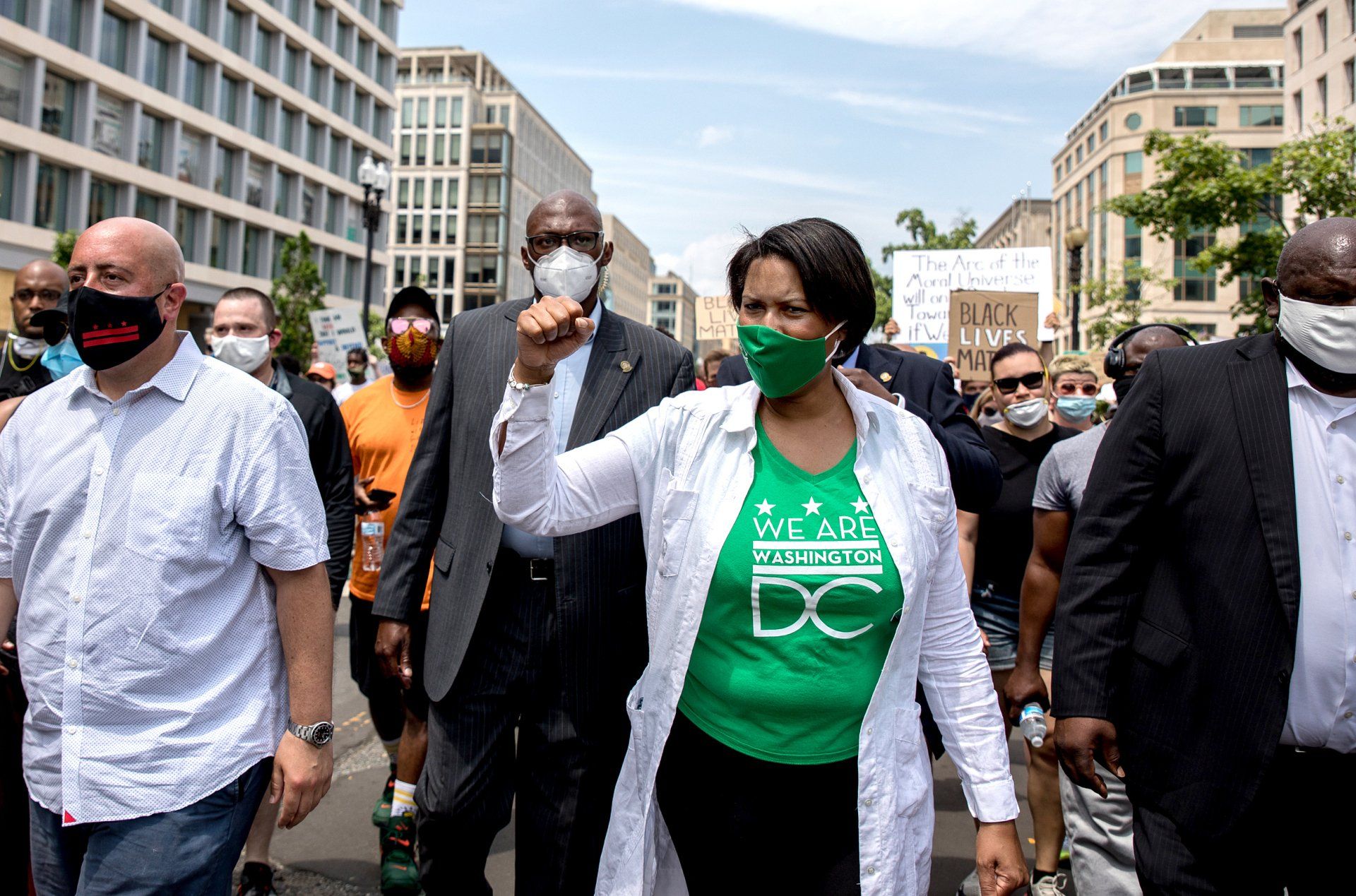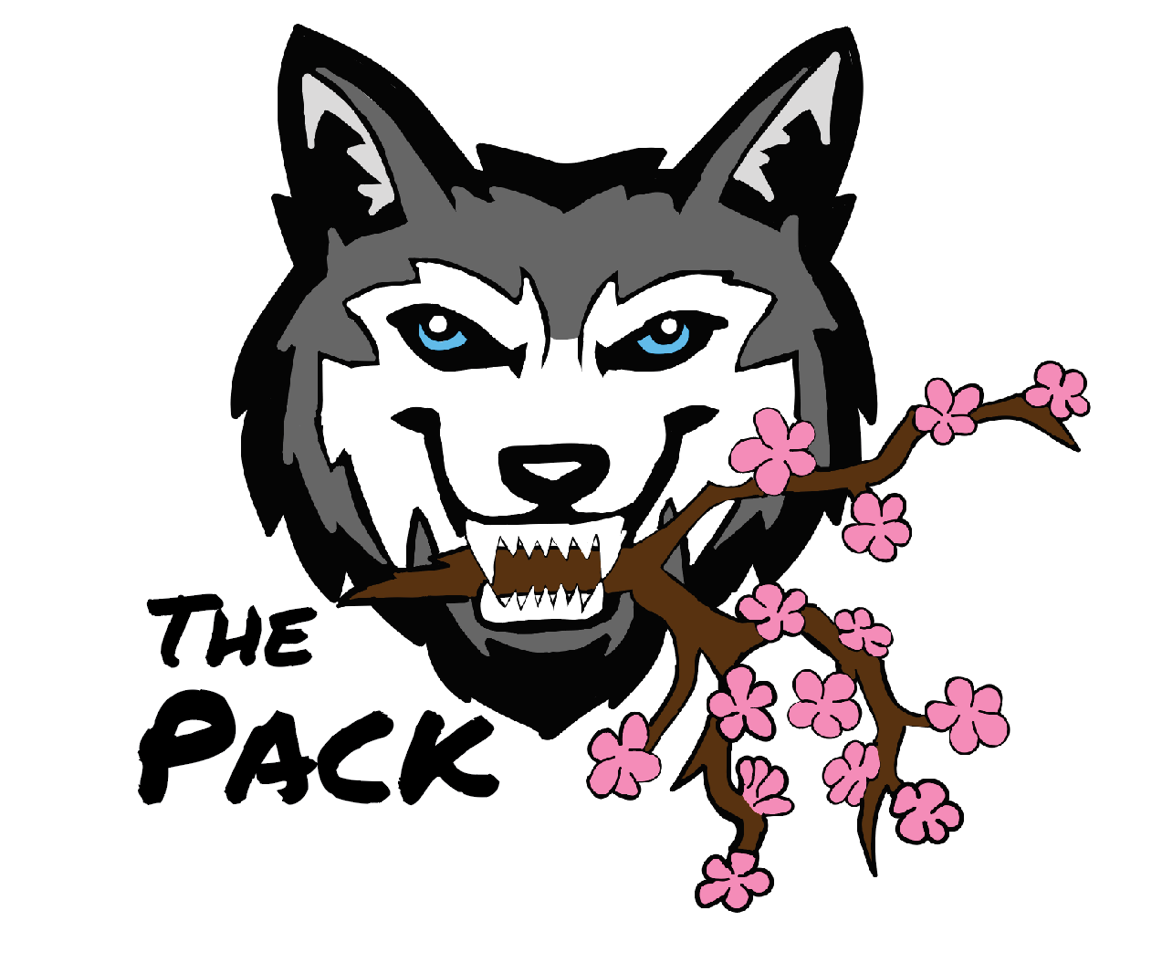Kavon Martez is Cultivating a Community Through the Game of Basketball
Basketball has a close relationship with the inner cities across the world. Sports such as tennis, golf, hockey, gymnastics, and so on, are not accessible for many black kids to participate in at an early age. A lot of this can be traced to a lack of access to resources within communities. With basketball, the game is simple. There’s not much equipment that needs to be purchased; all you need is some sneakers, a ball, and a hoop.
In DC culture, basketball’s unique relationship with the city cannot be ignored. To understand it you must look past the mainstream of the NBA, where the Washington Wizards, formerly known as the Bullets, have struggled to maintain success since their last championship in 1978. Basketball is one of the true subcultures of DC. The Goodman League in SE DC, is a great example of that. NBA pros, amateurs and fanatics alike gather to participate or watch games throughout the summer.
While those groups definitely hold impact, the biggest example of DC’s relationship to basketball is on full display with the game of 33. The goal of the game is to be the first to score 33 points, and there is no cap on the amount of people who can participate. What makes this unique to DC is the fact that many across the country play this same game, but they only play it to 21.
33 is a game that has been played on DC basketball courts for decades. No one knows the true origin of the game, but many trace it back to Patrick Ewings tenure at Georgetown University, and how Jon Thompson’s historic teams put DC basketball on the map in the 1980’s. Ewing famously sported the number 33 as a Georgetwon Hoya, and later on in his hall of fame NBA career with the New York Knicks.
Kavon Martez explored this very relationship between basketball and Washington DC, with the debut of his documentary ‘33|DC’s Game’ alongside co directors Llyod Foster and David Ross. The short film explores the rules of the game, its possible origins, its ties to Georgetown, and DC’s love for basketball.
For Kavon, the release of the documentary was a turning point within his life. Kavon is a native Washingtonian who previously dabbled with storytelling through making streetwear clothes. One day he decided to make a hoodie dedicated to the game of 33, and got a response that would propel his outlook on things moving forward.
“So I used to make clothes a lot…that was like my first creative outlet. So the way it started was one of the most organic things in my life…I made like this dope hoodie explaining the rules of 33 and what it meant and then I put it up on my social media, just joking around and I never got a reception like that [before].I never had an organic response like that. I had no expectation that people would like the sweater. l was just like, this is cool, this is just DC, just a game we played. So I put it on my social media and I had like 150 comments of people like, "bro, I need this, this fire”.
He soon connected with a friend of his, Lloyd Foster,a photographer attending NYU who introduced him to fellow filmmaker David Ross. Impressed with Ross’s previous work, a vision soon came to Kavon about what to do next.
“I was just like, people really loving this idea of 33. You think we can make a documentary about 33? And I never went into a magical brainstorm like that before. That one night that I thought about it, I visioned everything that was going to come. And then we created the film and now I have a basketball organization named 33 Hoyas with over 80 kids.”
33 Hoyas is a youth basketball team founded by Kavon in 2020. In the aftermath of the 33 documentary, Kavon developed 33 Community DC, feeling a responsibility to continue what he started. I visited Kavon at Shepard Park Recreation Center in May to talk about this journey, and the outlook of the organization. From the very moment I met him, you could feel his focus and attention to detail in everything he said. You could also feel how much the culture of DC shaped him.
In our conversation, Kavon discussed the pathway from the documentary release to developing a successful youth basketball program; connecting and receiving a donation from Chicago designer JoeFreshGoods; what he works to instill in the kids he mentors, and much more.
Here is an excerpt from our conversation:
How would you describe yourself?
Oh man, I got so many layers in myself, but I'm definitely a founder of a basketball organization. I'm a Washingtonian my whole life. I'm definitely a philanthropist, but I don't really like you know, it's like that word is all action instead of just the title. I think I do pretty good work in the community and I’m a basketball fanatic, to be honest.
So what do you think DC or this area in general's relationship to basketball is? How would you describe DC's love for basketball?
DC,'s love for basketball is amazing.I definitely feel like we're a basketball city. But the one thing is, the fandom of the bigger teams, it's starting to fade a little. People are very into high school basketball, youth basketball, which is okay. They got their fan base of guys that just love everything DC. Georgetown has faded tremendously in the public's eye of DC, but overall just playing a game, a lot of DC dudes play every weekend or every day. It's a big on trash talking, you know, you got [instagram] lives going on. I'm not sure if you watched the Quinn Cook [instagram] lives during the pandemic? It was some of the craziest debates and history of basketball in Washington DC. So it's definitely a basketball city.
You just mentioned how fandom has kind of gone into communities specifically. People aren't as much of a fan of bigger teams, but like Georgetown back in the eighties through the nineties, from the Ewing's to AI's [Allen Iverson]. That was a huge thing. And your basketball team uses imagery, kind of paying homage to that. Talk to me about how important revisiting that history was to you.
It's important. I come from a Hoya family. All my friends on my dad's side, we all are Georgetown fans, like fanatics. I used to go to a lot of the games before the pandemic hit. So I was a season ticket holder in a way unofficially for Georgetown basketball. I always thought it was so cool. And it was such a privilege to wake up on Saturday morning, get breakfast, and go to a Georgetown game in the afternoon. What's more DC than that?
I love Patrick Ewing, what he's done for our city. He made us a legit basketball city as far as the college landscape. Me being a young African American coach, John Thompson has played a major role in the development of young black kids, coaches, everything! He affected so many.
So it was kind of a no brainer. My team name was 33 community and I didn't have an official mascot [yet]. And I was just like, it feels right to be a Hoya. It feels right to play with those colorways. It feels right to have uniforms inspired by that and travel. I got a new uniform called the John Thompson set. We paying homage to John Thompson so it just makes sense. And it's teaching the next generation about where they come from because they have no clue what Georgetown is. Kids on my team!? They don't. They just like, "oh, this look fire," but whole time they dont know.
So talk to me a little bit about 33 Community DC. How did that come about in the aftermath of the documentary? What went into founding this group
Man, you know what went into the founding of 33 Community? The importance of using the momentum of the documentary.
So when I made 33 the documentary, the film. I don't think in that time, it was anything bigger in DC, as far as impact. Everybody was just standing back watching like wow, this is his moment. This is the moment right here, he's done something. We as the team, we've put together something that will last a lifetime and it was just a moment. I can tell people were just sitting back ike, I want to see this. I want to see where he's going to go with this. So I had my screening. I had three screenings in one day and I had a screening going on in New York at the same time to play off the Patrick Ewing aspect. So for us to do that, and then how the people showed up, like people brought their kids out, people sat back and watched the film, I cried at the screening.
It was just like, I couldn't believe the love and how people received the film. And in that moment I felt it was my responsibility to make this a lifetime thing instead of a moment thing. And there was so many kids I was coaching before that, but I didn't have my own organization. So people kept asking me, "Hey, what are you planning to do after?" "Are you gonna start this, and that?" And I fell in love with the responsibility to provide for DC. And the way I was gonna provide my service was through community, was [through] basketball. That's the best I have to offer and it just happened organically like that. So the night of my screening was the first day that I knew I was going to start a basketball organization on my own. That was the moment, the screening solidified everything.
You mentioned a couple things. One, being a native Washingtonian. You also talked about your kids not even knowing Georgetown's impact. So you have that context of history within this city. What does it mean to you to be a coach and to be able to engage with the future generation of Washingtonians?
It's great but I also feel sorry for the new generation because they missed out on everything that made us who we are. So the new era of kids in Washington DC is not the old kids of Washington, DC. They're much more...I believe that they're better skillfully than us in basketball, but as far as street smarts and stuff like that, they don't have a clue. Not to shade my parents or anything, but I never really got like a ride to practice. Everything was just meet up with your friends, walk to practice, leave practice, go get something to eat. It was just the grind and us being self sufficient. It's not like that, these kids man, they got their own social media.
You got young stars that's like 12 years old that has 30,000 followers, so he's not trying to hear nothing, you know what I mean? Like it's a new kid. We were definitely coached harder. I done got cussed out. I done got yoked up before. I done got smacked upside the head by coaches. We were much tougher kids so with this new generation of kids, I'm learning them. But I'm also kind of just very hesitant on the stuff that I would do and show them because we're not the same. It's a whole new day and age and they don't really have the grit that we had. But you know, that' what God had planned for us. It's a whole new city, it's just not the same I can tell you that.
Absolutely. And I even saw like on the 33 Community DC's IG page, you had kind of like a rules or outlook going into the season in what you wanted kids' mindsets to be. I think it was like, when you leave the court, make sure you dap everyone up. Having a defensive state of mind. Pushing constant hustle and effort. You kind of just spoke to how this generation of kids are different. So are these things you're trying to instill in them?
Yeah. You know the old saying though, you can lead a horse to the river, but you can't make 'em drink. So it's definitely some of my kids have taken on the personality of me and that vintage old DC, like just that gritty. You know, we played basketball outside in 30 degree weather. They not doing that, I don't care. They don't love basketball enough to play in 30 degree weather. But I can only instill the values that I grew up [with] in them and teach 'em. And you know I got a real gritty organization. I feel like we play good defense. I feel like we communicate, but it's still a journey. I can only give them the outline. That's why I gave all of them a player sheet to start the season before they ever practiced with me, like hey, this is what we going for.
This is how we're gonna do it. And I'm big on togetherness. I'm big on you guys FaceTiming each other, you guys playing a game together, you guys spend the night over each other's house. What they don't understand is you will never get this feeling again. You'll never be a 12 year old kid again, you'll never be 13 again. Me as an adult, when you look back on that, you miss it. Like, man, we had sleepovers, we had a game in the morning. You know, waking up in the morning, knocking on your friend's door. Eating toast before games and talking like, "yeah, what you gonna do today, man? "We gonna do it to em". After the game, asking your parents, "You gotta ask her. She going to say yeah, if you say it" you know how it go. So I always just keep them conscious to be in the moment of a kid. They know I want them on kid time.
How important do you think sports is to community building and community engagement and kids feeling connected to their area and their peers?
So sports building is major. This is the deep part of the interview. Washington DC inner city kids are last in division one scholarships. We are last. We don't have the nutrition as suburban kids or caucasian kids or asian kids that's more well off. We don't have the resources for training. We don't have the double income households where you can pay for the training. So a program like 33, it's targeted for inner city youth athletes.The elite and beginners. The elite kids that we have, I have to build them a profile. So I have to market this kid the same way a kid from Virginia who lives in a five, six, $700,000 mansion you know, his family makes 300k or better a year, I have to market my kid the same way that that kid is marketed. So if you can imagine, sports is huge because these kids' parents, some of them are struggling to make ends meet. So their kid getting a free education is everything that they're banking on. That would be such a blessing for the inner city kid and the inner city parent to get a scholarship and to go on to play division one basketball, division two basketball, HBCU basketball.
You know, God willing, somebody makes the league out of this organization and they are able to come back and build this up so now we got all these coaches, we got a system, we got nutrition facts for parents. They're playing across the world. That's my vision. That's the biggest thing. If you are going to write anything down, write down the discrepancy of the inner city DC kid compared to suburban Maryland, suburban DC, and suburban Virginia. It's a totally different game and I hope I can soften that journey. There's other guys in the city, good guys that's, welcome to come join me and us to build a powerhouse that serves our community. Until then, it's going to be hard for our kids to make it.

You kind of elaborated on it just now a little bit, but you talked about how, when you released the documentary, you felt a responsibility to continue this, be engaged. What's been the most rewarding part of having this role within the community coaching. Have you just had moments where it's like okay, this has been worth it so far.
Yeah, man. I met my idol, JoeFreshGoods. He donated a lot of money to 33 Community. He gave us our start...
And that was from the New Balance release he did in DC for the Outside Clothes collection?
Yeah. So, he gave us our start. For me to be like a fan of his and just, I was super into street wear, maybe like in 2014, 2015. So when he started out, that's when I was young, like the only dude in DC maybe, buying his clothes, getting everybody hip. One day I was driving down the street and a Chicago number popped up and I was like, man, who the hell is? And I was like, hello? He like, yeah, this Joe man, this JoeFreshGoods, man, what's going on? I was like, whoa, like I had almost crashed. Not to be like I'm geeked up, but I was just like this a full circle moment. And you don't even know I've been fucking with you for a long time. I got old emails when I'm asking to be his intern and stuff like that. So for us to become friends and for him to be helping me with one day possibly joining new balance basketball in the future, my organization being sponsored and stuff like that, that's a full circle moment.
But the day to day stuff I've been featured on the news, I had newspaper write-ups and stuff like that. To be in a Starbucks and an older lady be like, "Hey baby, I seen you on the news yesterday". And then I may be in like the mall or something getting some shoes or I might be out getting some food and a kid might see me and follow me on social media as far as the 33 page and be like, oh you the 33 dude. Oh, I want to play with y'all. Can you, can you call my mother?
They be like, I wanna play with your team. All these kids from DC are starting to identify my organization as the next face of DC, and they wanna be a part of it. And I always, when people catch me out, I always show love. I'm very talkative. I will sit down and have a full conversation with a stranger that has nothing and I will give them that respect and love cause it's power in people, you know what I mean? So the day to day love in the city is the most important, that's the full circleness, like damn.
But when Joe reached out, and him donating and stuff, that was dope. Cause now that's like my friend. Like, we really be chopping it up, checking on each other. That's a homie and we, God willing, can get something done with us coming over.
So you alluded to 33 building up its brand, its culture, its imprint within the city. Kids are able to recognize and identify and grow up with it. Older people within the community recognize you. But being someone who's been in this city, grew up here, it's a very different place even 10 years ago, 20 years ago with gentrification, and a lot of people being displaced. How do you navigate how the city changes and maintain that imprint? How important is it to continue this when those kinds of circumstances are happening?
It's just adapting. It's the honest to God truth man. Just adapting. You gotta adapt. Social media has made it easier to adapt because I'm able to market the program and our vision to parents all over Washington DC. And you know, it's hearsay. You win a couple championships and stuff like that. I'm always getting new jerseys and new merchandise. I always want my program to look like the new it thing cause I know that's one of the first rules in marketing, what you look like. So it's kind of easier to navigate in DC.
It's just more hardship, more people getting pushed out and stuff like that, but it's kind of easier because social media's so fast now. I don't have to ride through neighborhoods like "hey, how old are y'all wanna play basketball."
It's more so, they'll find me. So you know, it's cool. I love it. I adapted though. I'm not one of those dinosaur dudes. I bring the authenticity into this new age DC. It's two DC’s. It's the new DC and it's the old DC and I feel like I'm in the middle. Like I got so many cool hipster friends and good professional homies. One of my homies work for the Washington Post. We play ball every Sunday. I got those types of friends that's in higher places and good people that's making stuff happen in DC. But I still got that side man, that dark side that's still trying to figure it out and I'm able to decipher and walk that line between both of them. So it's kind of cool. I love the position I'm in.
Let's say five, not even five, like 10 years from now. What would you like to see from this vision you put together so far?
It's not even where I would like to see. It's what I'm going to see because I'm a determined guy and doer. I'd love to see 33 Hoyas be the biggest program on the east coast. We coming for the top spot. It's going to take manpower. It's going to take dedication. It's going to take losses. It's gonna take failures. It's going to take a lot, but I know in 10 years we'll be the number one program in the east coast, we'll have a big sneaker deal. We'll have a great scholarship program for kids that's not just basketball. We'll have a lot of scholarship athletes. In the next year we're launching our high school division. So everything is planted and calculated in the right way.
Maybe I'll even have some more award winning films, you know. Ten years from now I'd be 40 years old. My locs would be down to my ankle. I'd still be in shape. I probably wouldn't be as hands-on with coaching day to day. I'd more so be like the founder and the behind the scenes and just making sure this engine and this machine that I'm building still has a foundation.
Have you been surprised at all about being able to get people to help? With believing in some of the projects you've done. You mentioned having a team with your documentary, obviously with coaching you need good support. What have you thought of the feedback and support you've gotten so far?
I love it. Not to sound cocky, man, but people want to follow a great leader. Great leaders don't have hard times getting people to follow them. When you're honest, you do stuff the right way, you're transparent, you have a way with words, you're good with people, you're good with adults, you're good with kids, you're a people person, you lead by example, it's not hard for people to follow you. Some people are just born with that it-factor with people. Like maybe when you started your publication, some people didn't have to think twice about being on your team. They just likeI know he gets busy, I know what he is about. And that's the same thing I get for basketball and for community work or film, anything really.
I put my heart into it. I take time. I'm a good planner. I'm organized. And then I'm a no BS type of guy. I don't got a lot of BS on my name or around me. So it's like, when I do pop out to do something, people are just expecting great things. They like man, his track record is flawless, he's just a winner. I'm a winner, you know what I mean? And I don't feel sorry for being a winner. I don't. I am a winner. I don't like losing and I won't accept losing. So it's like, I'll be cocky on winning. I wake up in the morning, I'm waking up to win the day. People can feel that and they wanna be around it, you know? And after a while you get some of those qualities and those traits and you build new winners, and the next winner, and the next winner,like why can't we all be winners if we put it in our mind?
What do you think is the future of sports and specifically basketball culture within DC? Some would say this area has produced good talent and people might not always recognize that or this area's impact in general. But what do you think is the future of that culture here?
The future is what we make it far as the adults, the parents, the coaches and the organizations. We got to close this gap between us and our surrounding areas, New Jersey, New York. We have to get our athletes prepared to be high top tier players. Our kids have to start getting in shape at eight, nine years old.
What do you think have been some of the obstacles there?
The obstacle is ignorance. And when I say ignorance, I don't mean it as putting you down. I mean, the actual definition; a lack of knowledge. Parents, they don't have any clue on their own nutrition. One thing I notice when I see the NBA draft, I always see the son of an NBA player. His father played in the NFL. The mother was a D-1 track star. They understand the body. I don't care what your skill level is. If you do not work on your body, you will not make it in this new world as far as youth sports and sports past that. You will not get a D-1 scholarship if you're not in tip top shape. If you don't have an engine where you can run miles and you're preparing your body for that moment, that will fail. So my job is to bring the knowledge to DC.
Right now we have about 40 kids playing elite basketball and in the whole program we have about 90 kids. My plan in the next couple years is to quadruple that number and have 150 elite kids and 500 kids for recreation. And if we're giving these parents the knowledge to put your kid on this type of diet, your kid needs to wake up on Sundays and run Hills with us. He needs to start lifting weights at 13 years old. He needs to get in shape, he needs to fix his core. We can only provide that information and stress that we follow it. So we got a tall task man.
I can tell a lot just from this conversation, you have a mindset of, 'we're going to get this done'. Like I'm going to plug away at it. Have you seen that rub off on the kids?
Yeah, definitely. I mean, my whole 12u team is honor roll students. So they're starting to get that mentality of just getting it done. No excuse, just get it done. It's just like in life, you know, once you pull back the layers of everything, it's BS people and it's straight up people. When all the layers of you get stripped down. Who are you going to be when you grow up? Are you going to be a BS'er or you going to get stuff done? And most of 'em on that trajectory right now to get stuff done, but there's still some laziness and stuff like that. They not fully as locked in as they could be, but they grow into it.
You mentioned you're looking to get a high school program going. But talk to me about the age group that you work with now and what it's like working with kids that young.
So right now I work with five years old to 13 years old. I got beginners, I got intermediate, I got elite. To be honest, it's like a blank canvas and they don't know anything about this canvas and I'm showing them step by step how to paint, how to do this, this goes first. I'm teaching you this because of that. I'm teaching confidence. I've been training kids for the last two years and they are so much better than they were the first time I got 'em. And it's teaching them patience. Like when you first couldn't make a layup, then two months later you're making 10 layups in a row. Then the parents start to believe in what you're teaching your kid, their kid. Then it's just a lot of family atmosphere. We make it fun. We cracking jokes. We learn and we get better. But it's rewarding, man. I go to sleep happy.
Talk to me about the parents' reception of the program. Cause I'm sure, just trying to remember back to when I played sports, some parents might be apprehensive or not as engaged at first with certain stuff. Have you seen any change in their attitude?
Yeah they're really good people as far as believing in the program a lot. So the 12u team that I have, I had them since they were eight years old. So I had them for the last four years. So we have become family. And they've seen their kid go from being an okay player to a great player. And mostly all of those (Kavon motions above to a huge row of basketball trophies in his office) are their trophies. So it's just like, we became family during the process. It's great, man. I love them. I love the parents, man, we became friends. They call me just off the regular you know what I mean? It's great.
If someone asked you what 33 DC is, what would you tell them? How would you describe the program?
33 Community basketball is a branch of 33 Community. Basketball is a big part, but it's just a part. This is a life enhancement program when it comes down to it. If someone asks me, it's life enhancement, because you're learning about your diet, you're learning about how to be a teammate. You're learning people skills. I think just putting basketball on us will be selling us short. We are doing so much in the midst of teaching basketball that I just came to grips that this is a life enhancement program. They learning style, they learning so much from 33 because I introduced them to so much. Like history on why we wear black socks from Michigan Fab Five and stuff like that, so it's a life enhancement. We out of sight, we out of mind. We ain't in the streets. We not out robbing people, throwing eggs, throwing rocks, we are doing something positive. We in the gymnasium five days a week. We travel. Basketball tournaments. So it's life enhancement.
